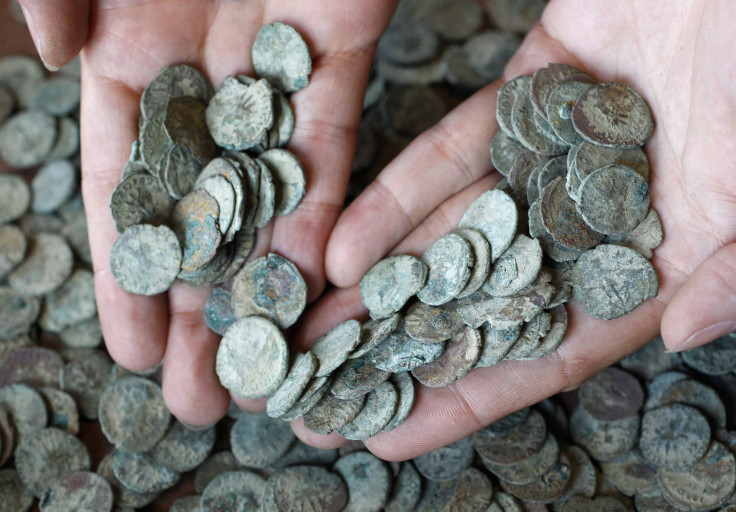Who Is Jack Stuef? Finder Of Forrest Fenn's Treasure Reveals His Identity
The man who found the Forrest Fenn treasure has identified himself after searching for the hidden fortune for two years.
Jack Stuef, who found the treasure June 6 in the same desolate spot in Wyoming where Fenn hid it 10 years ago, had initially decided to remain anonymous to protect his family and fortune.
He feared stalkers, death threats, home invasions, frivolous lawsuits, and potential kidnappings – all related to the treasure. He said in a Medium post, “I don’t want those things to happen to me and my family.”
The decision to step forward came after a woman filed a “meritless lawsuit” against Stuef, and the U.S. District Court for New Mexico ruled that Forrest’s estate must provide Stuef's personal information to the woman. Stuef says he does not know the woman, nor has he ever communicated with her.
According to CBS News, the woman, Barbara Anderson, a Chicago-based lawyer, spent thousands of dollars trying to find the treasure, claiming the emails that contained her progress were “hacked.”
Stuef said he has prepared for his day. He said, “Since finding the treasure, I moved to a more secure building with guards and multiple levels of security, and I have taken appropriate measures to protect myself.”
Fenn, an eccentric collector who died in September at the age of 90, created the treasure hunt along with a poem giving clues to its whereabouts. He hid the treasure, which was filled with gold, jewels, and other valuables worth more than $1 million, in the Rocky Mountains wilderness a decade ago, according to CBS News.
Hundreds of thousands of people have tried to hunt for the treasure, with at least four people dying during their search, the news outlet said.
The treasure now lies in a vault in a secure location in New Mexico, and Stuef said it will remain there until he sells it.
Stuef said he knows that when he found the treasure, he dashed the hopes of many fortune hunters around the world who had hoped that they would find it.
"But, to be clear, I am not and was never employed by Forrest, nor did he 'pick' me in any way to 'retrieve' the treasure," he said. "I was a stranger to him and found the treasure as he designed it to be found.”
Stuef said about his search, “This treasure hunt was not a referendum on anyone’s intelligence or abilities. Rather, it was a fun challenge based on figuring out what the words of a poem meant to the elderly man who wrote them, and nothing more than that.”
Stuef considers himself the “legitimate finder” of the treasure, saying that “many bizarre, false, baseless, and defamatory allegations have been made against me.
“I have never hacked or stalked the plaintiff or any person, nor have I been charged with or arrested for any crime in my life, and I certainly never searched for the treasure in New Mexico.
“I will take appropriate legal action against anyone who makes baseless claims against me.”

© Copyright IBTimes 2024. All rights reserved.





















